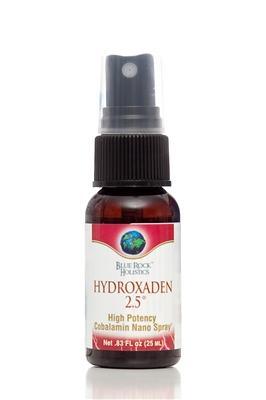Vitamin B12 deficiency has been called the “Master of Disguise” because it can have so many faces. Here are just some of the significant health issues stemming from B12 deficiency:
- Tremors
- Depression
- Sleepiness; chronic fatigue
- Hallucinations; paranoia
- Symptoms of Multiple Sclerosis or Parkinson's Disease
- Pain, tingling or numbness in arms or legs
- Memory loss; dementia
- Weakness; clumsiness
- Incontinence
- Decreased vision
- Transient ischemic attacks (TIAs or mini-strokes); cerebral vascular accident (stroke)
- Coronary artery disease; blood clots
- Chronic infections
- Tinnitus (ringing in the ears)
- Gastrointestinal problems
- Osteoporosis
Why in the world?
The reason that the problems caused by B12 deficiency can run the gamut is that this humble little nutrient has several HUGE jobs to carry out in your body:
- It's used to produce the acids needed for your DNA.
- B12 is needed for the formation of red and white blood cells that comprise your immune system.
- It lowers blood levels of homocysteine, an amino acid that is produced by your body as a byproduct of eating meat. Elevated homocysteine in your blood increases your risk of heart disease.
- B12 protects the delicate nerves in your brain and helps produce the neurotransmitters that allow your brain and nerves to communicate.
Now let's see what being low in this crucial nutrient looks like
How B12 deficiency destroys your health
B12 deficiency frequently strikes the nervous system, causing damage to the soft, fatty material called the myelin sheath that surrounds and protects your nerve fibers.
This damage (called demyelination) is like a frayed electrical wire and can lead to problems including numbness and tingling in your limbs, loss of balance, memory loss, fuzzy thinking
Eventually it can get as serious as to mimic multiple sclerosis or Parkinson's disease!
The next target is your immune system.
Since B12 is needed for your immune system's production of disease-fighting white blood cells, being low in it means you are FAR more susceptible to infections, viruses
Your gut is affected too because your body can't produce enough cells to replace your intestinal lining (which normally gets replaced every 3-5 days). That can lead to appetite loss and diarrhea--both of which make a B12 deficiency even WORSE.
But wait—there’s more!
As B12 deficiency continues, you can no longer produce enough red blood cells to bring oxygen where it's needed in your body. So you start to develop exhaustion, weakness
Next comes your ticker.
B12 helps control your blood level of homocysteine, so if you don’t have enough, homocysteine accumulates in your blood, and your risk of blood clots, coronary artery disease
It’s time to pay attention!
Clearly B12 is NOT something to take lightly. When you're talking about a nutrient that affects your brain, immune system and can protect you from a heart attack or stroke, it's time to pay attention.
And that starts with asking, "Could I be deficient in B12?"
Answer: It’s quite possible!
Current estimates show that as many as 1 out of 4 people may have
There are several reasons why:
First, your body's ability to produce the proteins needed for B12 absorption declines with age. So people age 50 or over are at a greater risk.
Digestive conditions such as IBS, Crohn's and colitis also affect B12 absorption and can leave you running low. And heaven knows
Antacids are a culprit too. Antacids neutralize your stomach acid, so when you use them you don't have enough acid to cleave off vitamin B12 from the proteins it's attached to. So it moves through your intestinal tract, unabsorbed.
Medications for Type 2 diabetes can also hamper B12 absorption, as well as alcohol use.
And since B12 is only found in meat and dairy, vegetarians are at risk.
Make sure you have enough!
The good news is vitamin B12 deficiency can be easily remedied with supplementation!
But before you rush to the store to get some pills, here's what you must know:
Studies show that B12 absorption through your digestive tract (i.e.: when you swallow tablets or capsules) can be as low as less than half of 1 percent!
In other words, you're barely getting any at all!
B12 injections from a doctor are also an option, but they are costly and inconvenient.
The very best way to get the B12 you need (that costs a mere fraction of what you'd pay for injections in a doctor's office AND it's easy and convenient) is to use Hydroxaden 2.5 oral B12 spray!
You simply spritz right Hydroxaden 2.5 under your tongue each day. The B12 is quickly absorbed right into your bloodstream through the
In addition to a crucial dose of vitamin B12, Hydroxaden 2.5 also gives you niacin (vitamin B3), vitamin B6, riboflavin (vitamin B2), plus a blend of herbs including ginseng, rosemary
All of these nutrients working together support sharper mental function, stronger immune health, protection from heart disease and a healthier overall metabolism.
And that means a great-feeling YOU!
Don’t run the risk
If you have a known or suspected vitamin B12 deficiency, every moment you ignore it your health can continue to deteriorate.
And since deficiency can be SO easy to address, there's no reason to ever risk running low.
Put Hydroxaden 2.5 to work for you, and pave the way for optimal health now!
To your health,
Sherry Brescia
PS: A few of you may have experienced a challenge with the sprayer not working as it should in a prior bottle of Hydroxaden 2.5, and I am happy to report that our manufacturer has completely resolved that issue!












Is it true that CYANOCOBALAMIN in B12 SHOULD BE AVOIDED? Its not easily absorbed?
Excellent information
Hi Sherry..When I went for my yearly physical I asked the Dr. to check my Vit B12..My test came back..excessive amount..How does one reduce it..?